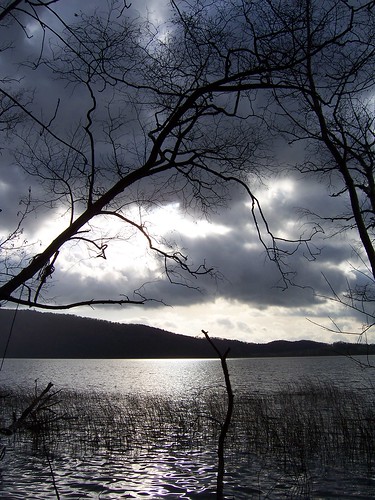Crushed teeth, sore eyes and itchy skin. Sound bad? This was the fate that befell central Europeans 13,000 years ago, according to new research. A study released by Aarhus University’s Felix Riede and Jeffrey Wheeler of the University of Cambridge suggests that particles shot into the sky by a huge supervolcano eruption were about twice as hard as human teeth. This led to widespread devastation of the region’s plant and animal life, and would have left local human tribes stranded to face the wrath of the volcano’s destruction.
The explosion came from Laacher See (Lake Laach), central Europe’s only caldera, in modern southwest Germany. Its gigantic eruption coated an area the size of the UK in nasty tephra particles, which would have clogged up lungs, irritated skin and turned anything edible into a gritty nightmare.
Animals faced widepread famine and population crashes, as teeth were ground to the gum by the particles. A similar fate would have befallen the area’s human tribes, with the scary seasoning accounting for not only starvation and death, but a regression of technology. Archaeological evidence suggests that the region’s humans downed advanced hunting tools like bows and arrows in favour of primitive spears.
“We have very little information on how small scale hunter-gatherer societies would respond to this,” says Riede. “Would they just leave? Or would they try and deal with the tephra?” Research shows that while many left the areas comprising much of modern Germany, the Netherlands and southern Sweden, some stayed on to continue their miserable dietary habits. The report also claims the tephra clouds continued to terrorise the region for up to 300 years, brought back regularly by strong winds.
Yet Aberystwyth University’s John Gratten suggests the supervolcano may have allowed its victims a greater stress tolerance, akin to the majority of the world’s earliest humans. “The people living in central Europe adapted to these intense stresses,” he says. “They were able to cope with them, and to survive.
“We grew up in a volcanic environment. (alluding to early human fossils in eastern Africa) That kind of pressure and stress, if it doesn’t kill you, it makes you stronger, as our friend Nietzsche would say.”
The ancient Europeans would have done well to follow the Egyptians’ health tips. They evolved a whole range of techniques to help deal with the effects of relentless sandstorms and dust on their eyes and teeth, inlcluding kohl to protect the eyes, and falsies for those whose real teeth had been ground down by gritty bread.
Prehistoric diets have hogged the evolutionary spotlight recently. Not only has the hatred of sprouts been touted as an evolutionary mystery, but dismembered limbs in Britain show early man enjoyed cuts of his own kind as part of a balanced meal.
